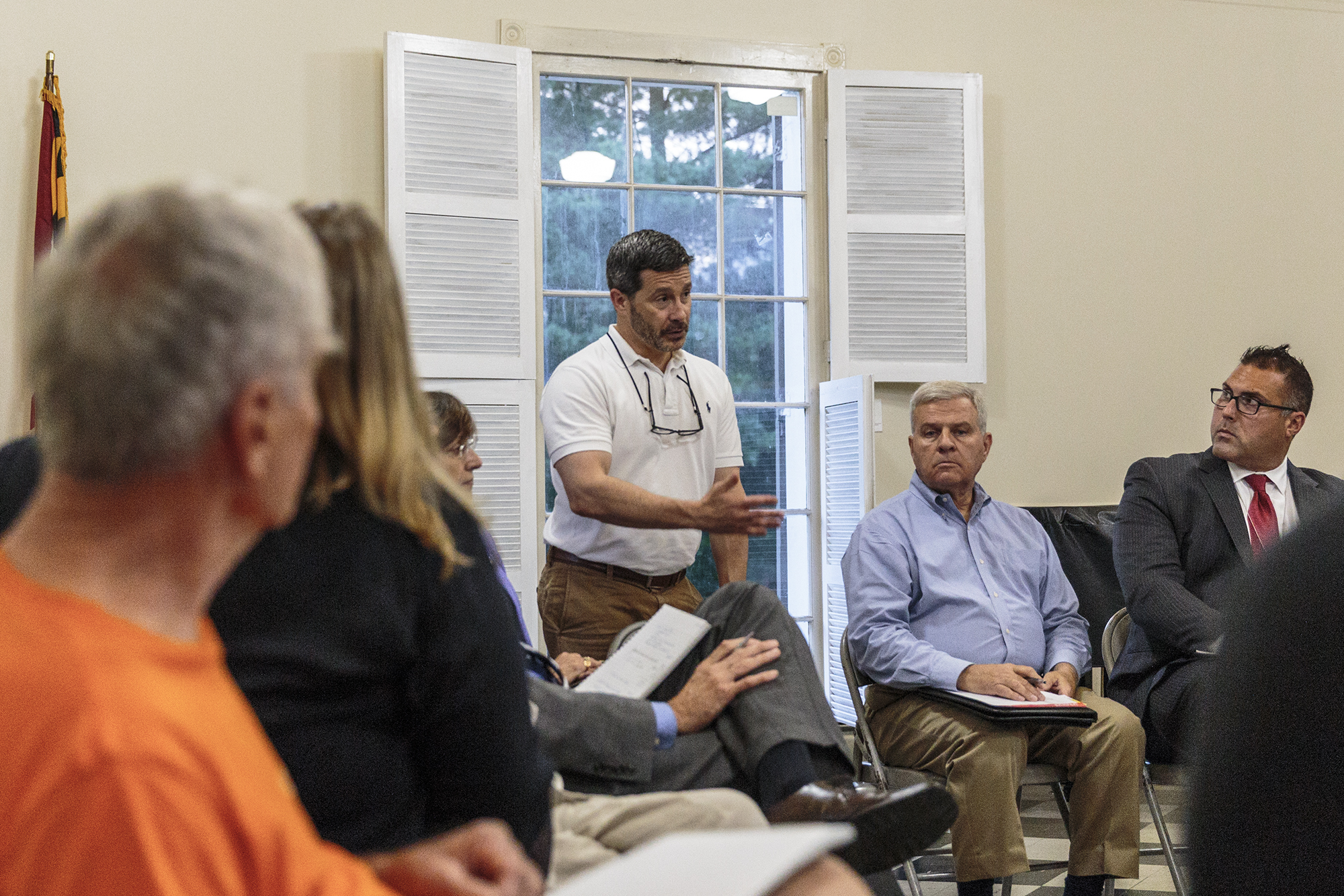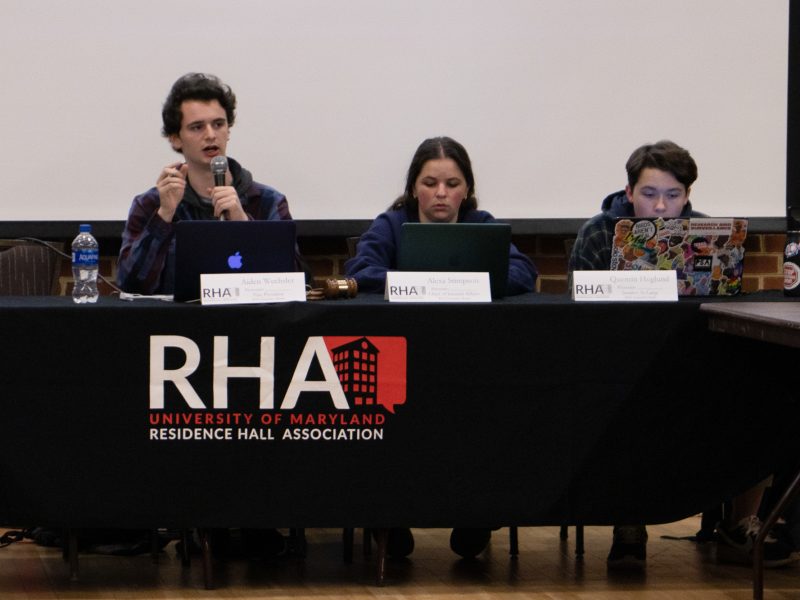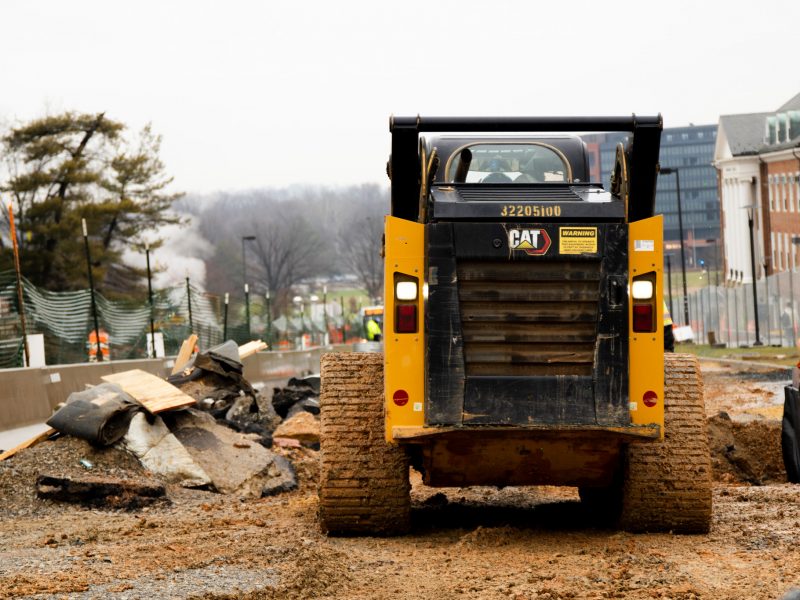Since the University of Maryland’s fall semester began, College Park residents say the amount of noise and public drinking has been greater than previous years.
Residents and city officials met at Old Parish House on Monday night to discuss an increase in disruptions in Old Town and Calvert Hills.
In 2013, this university started hosting campus tailgates to bring student parties back on campus and out of the surrounding neighborhoods. But this year, it hasn’t worked well, said District 3 Councilwoman Stephanie Stullich.
“It’s been a somewhat more difficult fall this year than it has been the past couple of years,” she said.
[Read more: Police are going door to door talking to College Park residents about noise restrictions]
“They’re walking down the street doing things you don’t want little kids to see,” said Stuart Adams, a Calvert Hills resident of three years. “No matter if you’re a student or you’re 80 years old, if you do them, you should have consequences.”
City Manager Scott Somers said these tailgates have been very successful in drawing large crowds away from neighborhoods in the past, but this semester has been problematic so far for residents.
“It’s been really loud, there’s been roving amounts of students, there’s been some public urination, there’s been certainly a lot of drinking, there’s been a lot of noise, and I think we’re all aware of that,” Somers said.
Sadie Isakower, risk management vice president for this university’s Panhellenic Association executive board, said chapter houses are not allowed to host parties for the first two weeks of the semester while recruitment is going on, which may be a reason for increased complaints from city residents.
John Rigg, a Calvert Hills resident of 10 years, said problems with open containers and “roving bands of shrieking people” are neighborhood-wide issues that need to be addressed by policy changes. Rigg, who was president of the Calvert Hills Civic Association for five years, said the civic association was successful when they repeatedly called the landlords of the problem house to complain.
[Read more: IFC tailgate to relocate to practice football fields]
University and city officials — including the University of Maryland Police, the City of College Park Code Enforcement and the Prince George’s Property Owners Association — have previously done Knock and Talks, or going door-to-door to talk about community expectations for students.
The city has a 24/7 noise hotline in place to help enforce the ordinance that limits how much noise is acceptable.
Somers said other Big Ten college towns across the country have adopted a “gathering ordinance” that limits the amount of people allowed to gather in one area.
District 3 Councilman Robert Day called the city’s noise control board “very underused in this city.”
No complaints have been filed to the board since this university’s fall semester began.
“That’s absolutely crazy with the amount of parties that we’ve had,” Day said.
Some city residents said they feared retribution from those they report if they filed such complaints.
Data received from these noise complaints helps the noise control board know where to “apply the hammer in the right place” through strategies like Knock and Talks, Day said.
Rigg wanted to focus on specific problem houses rather than employ a broad approach. There are certain hotspots that have a “corrosive effect on quality of life” for other residents in the neighborhood, he said. University Police Chief David Mitchell said the police identified 6 to 8 problematic houses.
Maryland state Sen. Jim Rosapepe (D-Prince George’s and Anne Arundel) said “serious stuff” is needed to address the issue. He suggested fines, shutting down problem houses and expulsion from the university.
“The leadership needs to come from the university and the city,” Rosapepe said. “We can do a lot better than this.”



